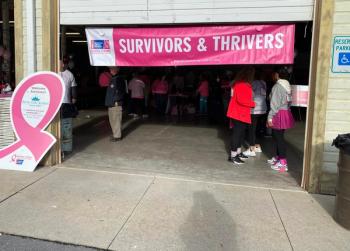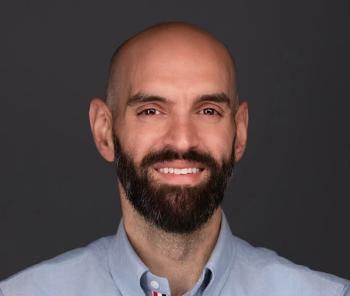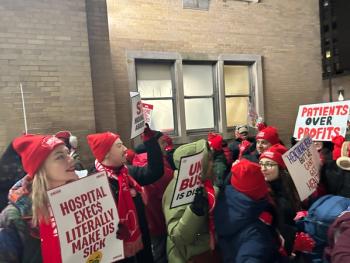
How a small Texas hospital upgraded its technology | Data Book podcast
In the latest episode of our podcast, we talk with Lynn Falcone, the CEO of Cuero Health in Texas. She talks about moving to a new electronic medical record system, cybersecurity and much more.
For any hospital, upgrading an electronic medical record system requires a great deal of time and effort.
But it’s a bit more challenging for a small hospital system.
Lynn Falcone, the CEO of Cuero Health in Texas, is seeing that firsthand. Her organization is in the midst of moving to a new electronic patient record system, and she talks about that effort and more in the latest episode of Data Book, a podcast from Chief Healthcare Executive®.
The organization operates a 49-bed hospital in Cuero, a small city about 90 miles from San Antonio. Cuero Health also operates five rural health clinics. Falcone says the upgrade to a newer electronic medical record system is long overdue.
“It is more than time to update our digital systems so that we can get more data out of it,” she says. “It is much more user friendly, but the foundation is we can provide better patient safety because of the communication that it brings.”
Cuero is installing Meditech Expanse across the entire system. In addition to moving from an outdated system to a modern system, the project will put the hospital and its rural clinics on the same patient record system.
“Physicians in the clinic won't have to toggle between EMRs to write an order on an inpatient or see what happened in the emergency room,” Falcone says.
She says the system should be up and running later in the summer. While there’s enthusiasm for the project, Falcone says building out the system and training staff gets a bit trickier for a system with just a few hundred employees.
“In our nursing world, we staff exactly what we can staff, and trying to pull people off the floor to help learn the system and train and then do the build …. It has been our absolute biggest challenge,” Falcone says.
“Staff are busy,” she says. “Staff are excited, but staff are tired right now trying to get it all in and get it all done. And we're just trying to help them to understand, there’s the light at the end of the tunnel, it is going to be a lot better. And it's not a train.”
As a rural hospital, Cuero Health also faces difficulties in recruiting and retaining workers. Cuero is a city of about 8,000 people. And larger hospitals in nearby communities are able to offer better pay.
“Staffing is always a challenge,” she says. “Who are you going to be able to recruit that wants to come live in a small town?”
During the podcast, Falcone also discusses the impact of the Change Healthcare cyberattack, which has disrupted operations and caused financial headaches at hospitals nationwide. She says Cuero Health is in a stronger position financially tha many rural hospitals, but the attack forced the system to move to paper billing, delaying cash flow and collections. “We'll get it eventually. But it's just slowing down,” she says.
Cuero Health has focused extensively on cybersecurity over the past few years. Falcone says the Change Healthcare cyberattack shows that all organizations are vulnerable to breaches.
“I think you can never be too careful,” Falcone says. “And don't be too trusting. And that is something that has been a huge education for my small hospital and my small community.”
Even with the challenges facing rural health systems, Cuero Health has maintained the financial strength to upgrade its electronic medical records, purchase a robotic surgical system, and an operating room project.
“We might be small but there's a lot going on in our little community as well as our hospital,” Falcone says.




























































































